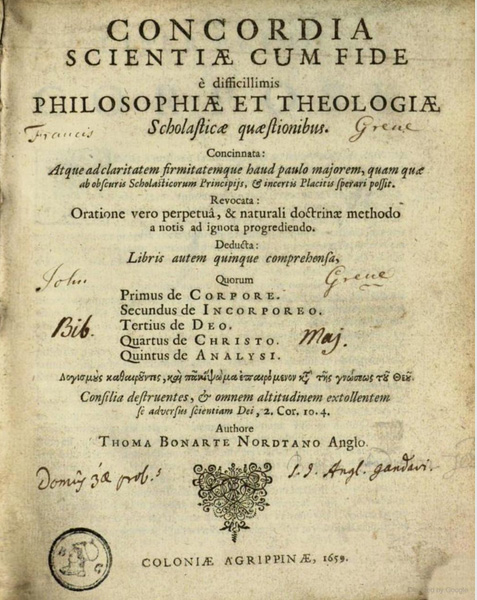
The Department of Philosophy at Texas A&M University is celebrating a significant achievement as Assistant Professor Dr. Jordan Lavender has been awarded the 2024 Marc J. Sanders Prize in the History of Early Modern Philosophy.
Awarded by a selection committee of specialists in early modern philosophy, the prize gives recognition to Lavender’s research and paper “The Cartesian Origins of Intentionality: Thought and Sensation as Direction in Thomas Bonarte (1612/13–c. 1670),” which will be published in the journal Oxford Studies in Early Modern Philosophy at Oxford University Press. The selection committee, which reviewed more than 40 submissions, praised Lavender’s work as “erudite and philosophically sophisticated.”
Challenging Worlds Of Thought
Lavender’s winning paper focuses on the 17th-century philosopher Thomas Bonarte, whose treatise — originally published in 1659 — challenges the traditional medieval idea that the mind's thoughts and ideas mirror what is in the world.
“Many medieval philosophers would say that if you are thinking about a tree, there is a ‘likeness’ of the tree in your mind,” Lavender said. “Bonarte finds this view absurd, humorously noting that your idea of something is no more like that thing than a crocodile is like a mushroom. Instead, according to Bonarte, what is distinctive of the mind is its ability to be directed at things. When you have a thought, it ‘points at’ something in the world.”

Take for instance, Lavender said, the thought that has popped into your mind about Bonarte when he was mentioned.
“That thought is directed or ‘pointed at’ the 17th-century person named Thomas Bonarte,” he said. “Bonarte thinks that a mind is just an entity that has an ability to be directed at things in this way.”
This directedness of our mind towards things in the world is known by contemporary philosophers as intentionality.
Reflecting on his passion for philosophy, Lavender recalls a lifelong interest in mathematics and a fascination with theoretical questions about the nature of the mind and its relation to our world. He earned his Ph.D. in philosophy from the University of Notre Dame, a Master of Arts from Boston College and a Bachelor of Arts from the University of Georgia. His early career included a postdoctoral fellowship at Purdue University before he joined Texas A&M in January 2025.
“The welcoming campus culture and vibrant community of dedicated students make Texas A&M an ideal environment for innovative philosophical inquiry,” he said. Lavender will teach 17th-century philosophy in fall 2025 and medieval philosophy in spring 2026.
“In all of my classes, students will learn how philosophy can open up new perspectives on questions and problems that they already care about and provide new problem-solving tools that they can transfer to other areas of inquiry,” he said.
Lavender exemplifies how revisiting underexplored historical figures and ideas can drive intellectual progress. He is committed to expanding his research into other overlooked areas of philosophical history, with a particular focus on the contributions of lesser-known thinkers. His current projects include examining the scholastic philosophical traditions of Latin America, aiming to shed new light on often-overlooked ideas and bring fresh perspectives to the field.


